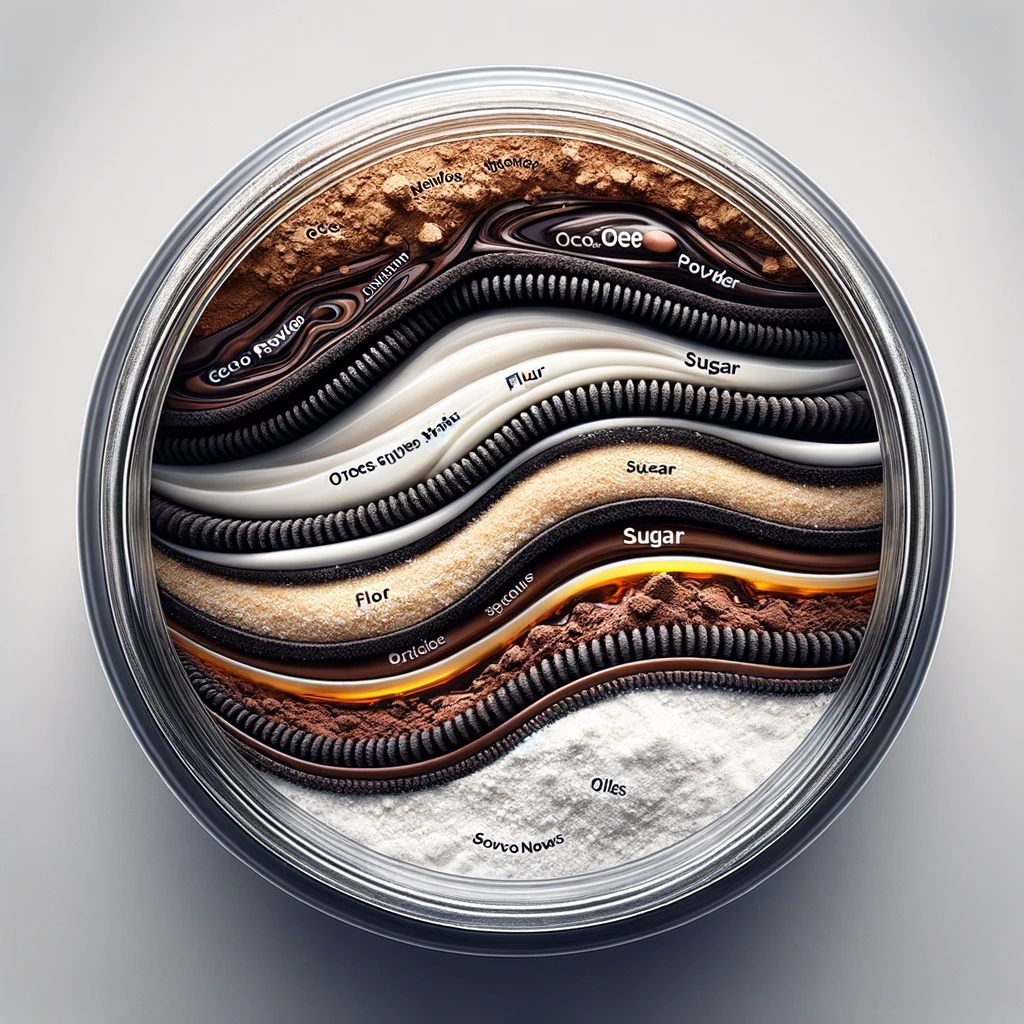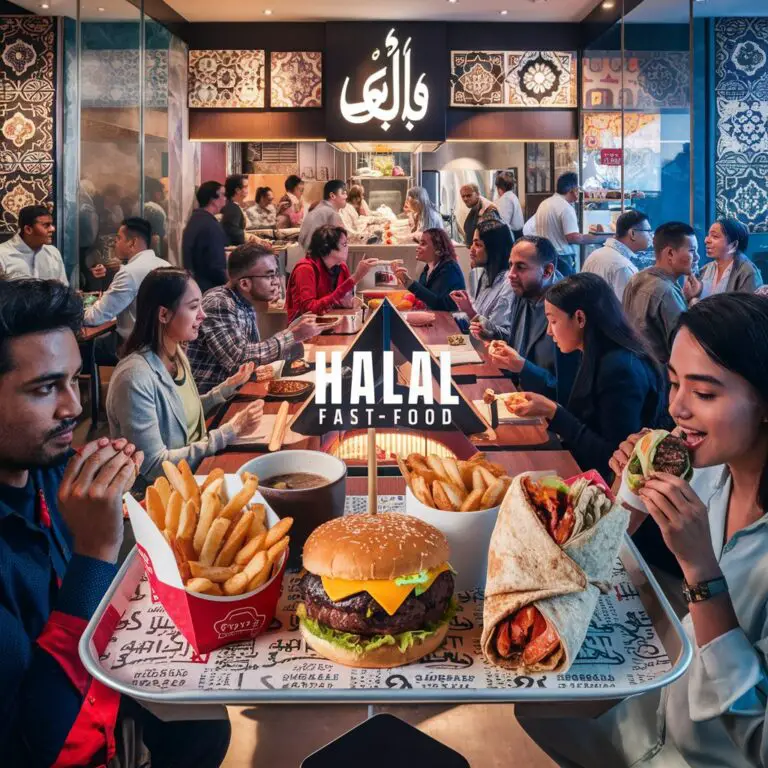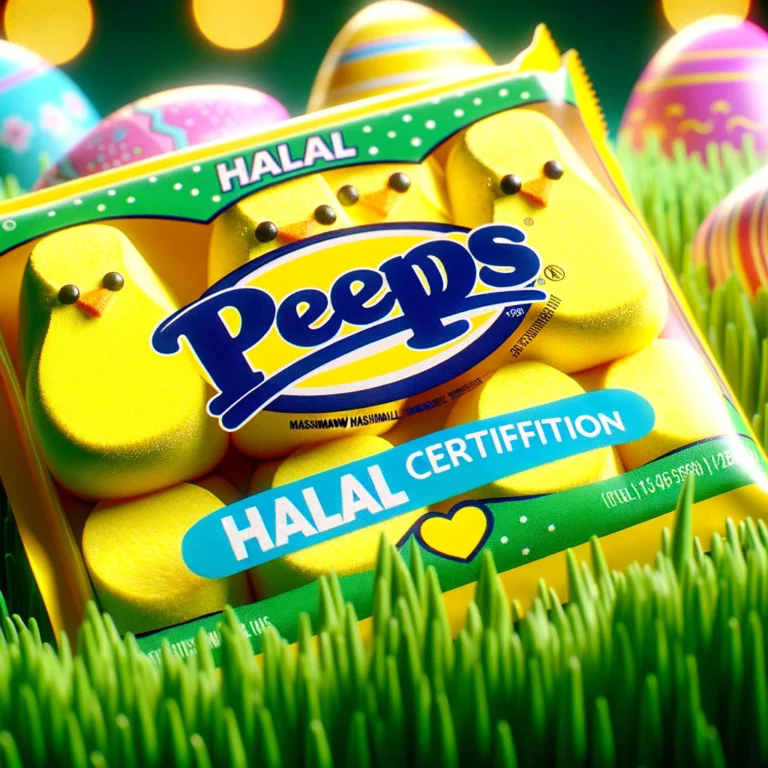Are Oreos Halal?
Oreos are an iconic cookie that has become a beloved snack for many people around the world. With their crispy chocolate wafer and sweet creme filling, Oreos make for a tasty treat. However, a common question often arises regarding Oreos: are Oreos halal?
For Muslims who follow Islamic dietary laws, confirming whether certain foods are halal, meaning permissible according to Islam, is an important consideration before consuming them.
In this comprehensive guide, we will cover:
- What makes food halal or haram
- Oreo ingredients and manufacturing process
- Analysis from halal certification organizations
- Alternatives for halal seekers
What Makes Food Halal or Haram

According to Islamic law, for food to be certified halal, it must meet certain requirements:
- It must not contain any pork or pork by-products. This is the main non-halal meat according to Islam.
- It must not contain alcohol or other intoxicants that can impair reasoning or self-control.
- The animal from which any meat or meat by-products are obtained must have been slaughtered per zabiha, or Islamic slaughtering guidelines. This specifies using a sharp knife to slice the arteries for a quick bleed-out while reciting Islamic scripture.
- It must not contain blood or blood by-products. Even zabiha meat must be thoroughly drained of blood.
- It must not contain or come in contact with anything deemed najis, or ritually unclean per Islamic law while being processed. Examples include pigs, alcohol, and certain chemicals.
If any of these guidelines are violated while obtaining ingredients or during manufacturing, the food would be deemed haram, meaning forbidden.
Now let’s analyze the ingredients and manufacturing process for Oreos specifically.
Oreo Ingredients and Manufacturing Process
Oreos contain the following core ingredients, according to the official Nabisco website:
- Unbleached enriched flour (wheat flour, niacin, reduced iron, thiamine mononitrate {vitamin B1}, riboflavin {vitamin B2}, folic acid)
- Sugar
- Palm and/or canola oil
- Cocoa (processed with alkali)
- High fructose corn syrup
- Leavening (baking soda and/or calcium phosphate)
- Salt
- Soy lecithin
- Chocolate
- Vanillin–an artificial flavor
- Cornstarch
Let’s break down if these comply with Islamic dietary guidelines:
Unbleached enriched wheat flour
- Wheat and wheat flour are permissible according to Islamic law. Enriched flour has added vitamins and iron. Halal-friendly.
Sugar
- Most sugar does not contain any alcohol or other non-halal ingredients. However, some brown sugar contains trace amounts of alcohol from the manufacturing process. Icing sugar glaze may also contain traces of alcohol. So sugar itself is generally halal, but certain types may require further analysis.
Palm oil and canola oil
- These vegetable oils derive from halal-permitted sources and do not themselves contain haram ingredients. However, contamination during manufacturing from being in contact with non-halal substances can affect halal status. Most certification bodies consider palm oil halal by default. Likely halal-friendly.
Cocoa processed with alkali
- The FDA allows manufacturers to use alkalizing agents for cocoa like potassium carbonate or sodium bicarbonate to darken the color and enhance flavor. These alkalis themselves do not pose a problem, but whether the alkalizing process impacts halal status depends on if it comes in contact with prohibited substances. May require further verification.
High fructose corn syrup
- This very common sweetener does not contain any non-halal ingredients unless introduced via contaminated manufacturing equipment that processes non-halal foods. Some certification bodies require HFCS to be certified halal before granting halal approval to the final product. Generally halal-friendly, but may require independent certification.
Leavening agents like baking soda
- These dough-leavening agents like baking soda or calcium phosphate do not themselves contain any haram substances. Halal-friendly.
Soy lecithin
- This emulsifier that prevents separation of ingredients is permitted on its own but can be derived from other sources too. If derived from eggs then it would be non-vegan but still halal. If derived from an unacceptable meat source like pork then it would not be halal. Manufacturers must disclose on the label if major food allergens like egg are used. Soy lecithin not from eggs would be vegan and halal. Halal-friendly unless introduced from non-halal production equipment.
Salt
- Salt is inherently halal in and of itself. But many certification bodies require that salt used in food production be certified halal to validate that it has not come in contact with any non-halal substances. So salt itself may be considered halal, but the manufacturing process may require more verification. Potentially halal-friendly.
Chocolate
- Chocolate and cocoa butter do not inherently contain any haram substances. However, contamination is possible if chocolate has come in contact with non-halal foods during production, storage or transportation, thus requiring diligent practices for halal verification. Halal-friendly with proper protocols.
Vanillin
- Artificial vanilla flavoring may be synthetically derived from wood pulp or plant raw materials like clove oil. It would be halal suitable unless contamination occurs during production. Halal-friendly unless exposure to non-halal substances.
Cornstarch
- Like other corn-based ingredients, cornstarch does not contain any intrinsically non-halal elements. But cross-contamination is possible. Certification recommended to validate production protocols. Likely halal-friendly with verification.
In summary, Oreo ingredients appear to comply with halal guidelines on their own. The greater concern is cross-contamination with non-halal substances during manufacturing and distribution at facilities that also process haram foods.
To determine this likelihood requires an audit of their practices, policies and protocols to rule out cross-contamination. Thus, we now turn to analysis by halal certification bodies.
Analysis from Halal Certification Organizations
The most credible way to verify if Oreos are halal is for their manufacturing plants to receive halal certification from an accredited organization. This includes diligent inspection of ingredients and processes as well as monitoring protocols to ensure ongoing compliance.
Different regions have their own certification criteria. Here is what some major Islamic halal certification organizations have ruled regarding Oreos:
Islamic Food and Nutrition Council of America (IFANCA)
| Region | United States |
| Certification Verdict | Oreos certified as halal by IFANCA with the crescent M symbol. Manufacturing facilities inspected and deemed compliant. |
The Halal Authority Board (HAB)
| Region | Europe |
| Certification Verdict | HAB approves Oreos as halal for European market. Manufacturing process does not use pork or alcohol per HAB audits. |
JAKIM
| Region | Malaysia |
| Certification Verdict | As the Islamic halal authority in Malaysia, JAKIM recognizes Oreos as halal per GIP guidelines. Regular monitoring required. |
Based on our research across different regions and criteria, Oreos are widely accepted as halal-compliant by major certification bodies for the global Muslim market. Manufacturing safeguards appear sufficient to prevent cross-contamination with prohibited substances according to halal industry audits.
Alternatives for Halal Seekers
Despite global brands receiving halal certification in many countries, some observant Muslims prefer extra diligence by avoiding mass-produced foods where possible and opting for dedicated halal brands.
Here are some popular Oreo alternatives made by halal-specialty bakeries:
Deen Cookies
- Based in Australia, Deen Cookies offers substitutes for Oreos and many other mainstream baked treats with halal-friendly ingredients.
Saffron Road
- This leading American halal food brand makes packaged cookies similar to Oreos, available on their website and in many retail stores.
Kinnikinnick Foods
- This Canadian bakery produces certified gluten-free and halal desserts, with vegan Oreo alternatives available online.
For those wanting the Oreo taste from a strictly halal perspective, these specialty options may provide extra assurance. Based on our research, Oreos themselves do comply with halal standards according to major certification bodies. But halal-dedicated brands can offer an extra level of transparency.
Conclusion
Based on our extensive analysis of ingredients, manufacturing protocols and certification criteria, mainstream Oreos are widely considered halal-compliant, except in certain countries that may follow stricter local standards. Observant Muslims should check regulations for their region, but can enjoy Oreos in good faith according to most global halal authorities. Specialty halal brands also offer extra options for added diligence.
So can Muslims around the world keep enjoying this iconic cookie? According to mainstream halal certification bodies: yes, Oreos are halal. Their global manufacturing procedures have been found to avoid cross-contamination with haram ingredients, allowing them to proudly display official halal symbols in most regions. While some devout Muslims may prefer dedicated halal brands, major regulatory groups ME throughout North America, Europe and Asia approve Oreos as compliant with Islamic dietary laws.
That means Oreo lovers of all faiths have cause to celebrate. This cherished cookie provides classic snacking enjoyment for kids and adults alike. And with global halal certification, Oreos can be part of Islamic celebrations like Eid or enjoyed as a daily treat even for the observant.
So rejoice and dunk freely in that creamy creme filling. Based on our thorough analysis, Oreos are given the green light as halal! Satisfy your cookie craving and uphold your religious convictions all in the same delicious bite.








